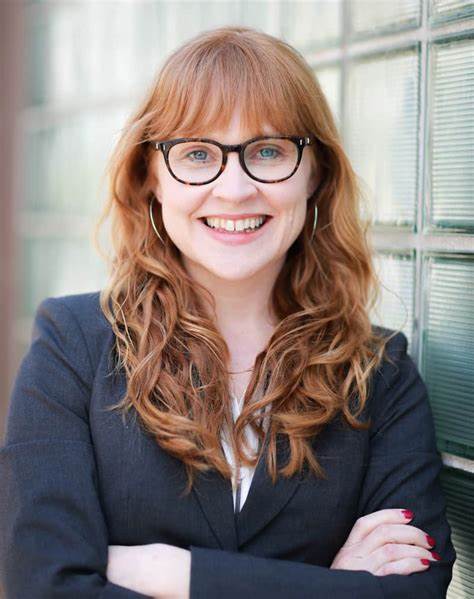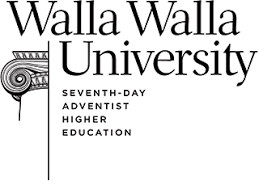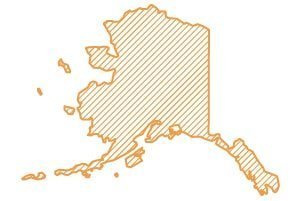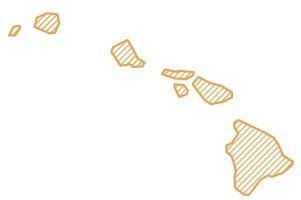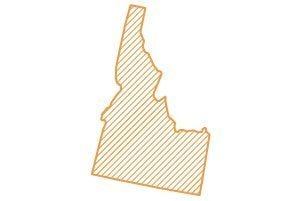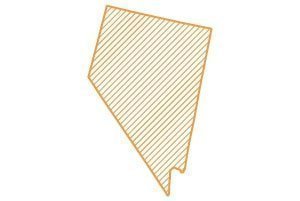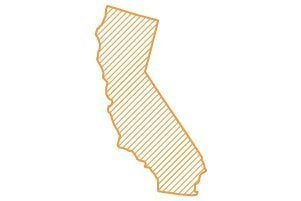Do you want to study to become a social worker in the state of Washington? You need look no further than Seattle for a top-quality MSW program. According to the 2024 US News & World Report ranking of social work schools, the University of Washington’s School of Social Work is ranked 7th in the country (1). Alternatively, you could pursue your MSW outside of Seattle at Eastern Washington University or Walla Walla University. Washington offers various program specializations, rural social work, clinical social work, medical social work, and behavioral health.
- Arizona State University - Online offers the respected CSWE-accredited Master of Social Work online. ASU Online knows today’s MSW students need remote learning options with no compromises. That’s why you’ll find the same professors, field work requirements, and internship placement assistance that ASU provides on campus. Visit School's Website
- Grand Canyon University offers Online Social Work Degrees. Choose between Bachelors of Social Work, Master of Social Work, Master of Social Work (Advanced Standing). Visit School's Website
- -Earn a graduate degree in Social Work from a CSWE-Accredited program online. Visit School's Website
- Walden University offers Master of Social Work (MSW) - Advanced Standing (requires BSW). Visit School's Website
- University of Kentucky offers its Online Master of Social Work: Advanced Standing Program available. MSW program includes options for an advanced-standing program (30 credits) and a 60-credit regular standing program. Visit School's Website
- George Mason University - Throughout Mason’s online MSW program, you’ll build knowledge for evidence-based practice in classes led by practicing social workers. Visit School's Website
Washington MSW Programs
CSWE-Accredited Programs in WA
Four of the six universities offering MSW programs in Washington are accredited by the Council of Social Work Education (CSWE). Attending an accredited univeristy is essential if you plan to seek social work licensure after graduation. Pacific Lutheran University and Heritage University hold candidacy status, meaning their accreditation is pending. If they achieve accreditation, students who graduate from their MSW program during the candidacy phase will be recognized as graduates of an accredited program. Be sure to confirm with the school their most current status.
Advanced Standing Programs
If you already hold a Bachelor of Social Work (BSW), you are eligible to apply for the advanced standing track at any of Washington State’s MSW programs. All advanced standing programs in the state can be completed within one year, allowing you to earn your MSW in less time and at a lower cost compared to traditional programs.
As you review the universities listed below, please note that “traditional program” refers to the MSW program’s track for students without their BSW. In addition, the tuition figures provided are based on each school’s full-time, on-campus traditional program. Costs for advanced standing, part-time, online, or hybrid may vary slightly. Additionally, tuition does not include fees, which can significantly increase the total cost of the program.
University of Washington (UW)
- Seattle, WA
- 1-2 years
- Hybrid + Campus
Location: Seattle, WA
Modality: Hybrid, On-campus
Credits required:
- Traditional Program: 75
- Advanced Standing: 48
Program Length:
- Traditional Program: 2 years
- Advanced Standing: 1 year
Cost:
- $24,894/year + fees (Resident)
- $41,976/year + fees (Non-resident)
Program Overview:
The University of Washington’s long-standing MSW program has been accredited since 1934. It provides significant flexibility with a two-year traditional track or an advanced standing track, both of which can be completed full- or part-time. Specializations are offered in administration and policy practice, community-centered integrative practice, and clinical social work.
Why You Should Consider This MSW:
- Flexible Program Options: Multiple pathways including a full-time day program, advanced standing program (full- or part-time), and an extended degree program (full- or part-time).
- Comprehensive Specializations: Provides specializations in both micro and macro practice.
Additional Program Considerations:
- Limited Part-time Specializations: Part-time traditional and advanced standing programs only offer the clinical social work specialization.
- Non-resident Tuition Costs: Program is significantly more expensive for non-state residents.
Eastern Washington University (EWU)
- Cheney, Spokane, Everett, WA
- 1-2 years
- Online + Hybrid
Location: Cheney, Spokane, Everett, WA
Modality: Hybrid, Online
Credits required:
- Traditional Program: 90
- Advanced Standing: 51
Program Length:
- Traditional Program: 2 years
- Advanced Standing: 1 year
Cost:
- $425/credit hour + fees (Resident)
- $937 + fees (Non-resident)
Program Overview:
EWU’s MSW program is offered at three locations: a full-time option at the Cheney campus and part-time pathways in Spokane and Everett. The program prepares students for advanced generalist practice, with specialized electives available for those who want to focus on specific areas. Full-time traditional and advanced standing programs are conducted in person, while the part-time programs are offered in a hybrid format.
Why You Should Consider This MSW:
- Regional Accessibility: Offered at multiple locations including Cheney, Spokane, and Everett, Washington.
- Adapable Course of Study: Focuses on advanced generalist social work and allows students to build a course of study that best fits their career path.
Additional Program Considerations:
- No Online Options: None of the programs, full- or part-time, are offered fully online.
- Expensive for Out-of-State Residents: Most expensive program in the state for non-residents.
Seattle University (SU)
- Seattle, WA
- 2 years
- Campus
Location: Seattle, WA
Modality: On-campus
Credits required:
- Traditional Program: 66
- Advanced Standing: 39
Program Length:
- Traditional Program: 2 years
- Advanced Standing: 10 months
Cost: $874/credit hour + fees
Program Overview:
SU’s MSW program emphasizes training advanced clinical social workers with a focus on social justice and community. Students can choose from three optional sub-specializations: addictions counseling, medical/health social work, and trauma-informed practice. Both the traditional and advanced standing programs require full-time enrollment.
Why You Should Consider This MSW
- Specialized Training: Financial support and supervision provided through specialized training opportunities in behavioral health within K-12 school settings and community behavioral health agencies.
- Diverse Faculty: 66% of SU’s social work faculty come from underrepresented communities, with 70% identifying as part of the LGBTQ+ community.
Additional Program Considerations
- Only In-person Format: No online or hybrid modalities, potentially limiting those living further away from campus.
- Full-time Programs: Traditional and advanced standing programs only allow full-time enrollment, which might be difficult for working professionals.
Walla Walla University (WWU)
- College Place, WA, Billings, MT
- 1-2 years
- Online + Campus
Location: College Place, WA, Billings, MT
Modality: Online, On-campus
Credits required:
- Traditional Program: 73
- Advanced Standing: 45
Program Length:
- Traditional Program: 2 years
- Advanced Standing: 1 year
Cost: $748/credit hour + fees
Program Overview:
WWU offers its MSW program on two campuses– College Place, WA, and Billings, MT– as well as fully online. On-campus classes are held in person once a week on Mondays. The program has a clinical emphasis, preparing students for licensure as clinical social workers.
Why You Should Consider This MSW
- Flexible Format: Designed for working students with classes scheduled only once per week in-person or a fully online format.
- Scholarship Opportunities: Several scholarships are offered to support MSW students and relieve the financial burden of graduate school.
Additional Program Considerations
- Synchronous Online Classes: Online students must attend synchronous sessions on Tuesday and Thursday evenings, which may limit scheduling flexibility.
- Religious Environment: Affiliated with the Seventh-day Adventists and, while inclusive, its religious orientation might not match some students’ desire for a secular environment.
Pacific Lutheran University (PLU)
- Tacoma, WA
- 2 years
- Hybrid
Location: Tacoma, WA
Modality: Hybrid
Credits required:
- Traditional Program: 60
- Advanced Standing: 36
Program Length:
- Traditional Program: 2 years
- Advanced Standing: 14 months
Cost: $886/credit hour + fees
Program Overview:
The MSW program at Pacific Lutheran University prepares students for clinical social work, with a focus on healthcare and behavioral health. The curriculum also includes significant content on anti-racist practices, diversity, equity, and inclusion.
Why You Should Consider this MSW
- Global Focus: Opportunity to study abroad during a January Term to learn about international health models.
- Small Class Size: Built on a small cohort model with typically 10-18 students, creating a strong sense of community.
Additional Considerations
- Not Yet CSWE Accredited: PLU holds candidacy status with the CSWE, meaning it is in the last stage before accreditation but not yet accredited.
- Specific Focus: Emphasizes healthcare and behavioral health, which might not align with all students’ professional goals.
Heritage University
- Toppenish, WA
- 1-2 years
- Hybrid
Location: Toppenish, WA
Modality: Hybrid
Credits required:
- Traditional Program: 60
- Advanced Standing: 34
Program Length:
- Traditional Program: 2 years
- Advanced Standing: 1 year
Cost: $5,472/semester + fees
Program Overview:
The MSW program at Heritage University equips students for advanced generalist social work, offering two pathways: one for those seeking to work in K-12 settings and another for individuals specializing in substance use disorders. Classes follow a hybrid format, with seven in-person sessions held on Saturdays each semester and the remaining coursework completed online.
Why You Should Consider This MSW
- Balanced Format: Mixture of in-person and online coursework accommodates diverse learning preferences.
- Supportive Learning Environment: Students receive personalized attention and support with class sizes ranging from 12 to 25 students.
Additional Considerations
- Candidacy Status: Waiting for full accreditation from the CSWE; currently holds candidacy status.
- Rural Focus: Focuses on serving rural, diverse, and underrepresented communities; might not be the best fit for students planning to live in urban settings.
Social Worker Employment in Washington
According to Salary.com, the average annual salary for a social worker in Washington is $68,346, with most professionals earning between $54,982 and $83,697 (2). Data from the Bureau of Labor Statistics indicates varying salary averages based on specialization. Child, family, and school social workers, for example, earn an average salary of $64,860, and mental health and substance abuse social workers receive a slightly higher mean wage of $67,280. Healthcare social workers typically earn $70,390 annually, and social workers in all other categories enjoy an average yearly salary of $90,580 (3). The latter category would include government positions, which often yield higher-than-average salaries.
In addition, some regions of Washington pay higher than the state average. For example, the mean salary for a healthcare social worker in the Portland-Vancouver-Hillsboro, OR-WA area is $79,880. Similarly, mental health or substance abuse social workers in Seattle-Tacoma-Bellevue, WA, earn an average of $70,990, and the average annual pay for child, family, and school social workers in the same region is $67,130 (4).
In addition to looking at salaries, it is important to investigate the anticipated growth of social work jobs in the state. Fortunately, the majority of social work specializations in Washington are projected to experience an expansion in job opportunities between 2022 and 2023. Mental health and substance abuse social work jobs are forecasted to see the largest increase at 14.6%, followed by healthcare social workers with a 12.5% growth rate. Jobs for child, family, and school social workers are also projected to expand by 11.3% (5). Securing a social work job after graduating from an MSW program in Washington appears promising.
Issues Facing Social Workers in WA
The state of Washington has a higher prevalence of mental health and substance use issues compared to the national average (6). Between 2022 and 2023, approximately 27.99% of Washington’s population was diagnosed with a mental illness, compared to 22.95% nationwide, while 7.41% were diagnosed with serious mental illness, exceeding the national rate of 5.83% (7). If you are interested in addressing mental health through clinical social work practice, several MSW programs in Washington prepare students to obtain their Licensed Independent Clinical Social Worker (LICSW) license.
Washington also has the third-highest population of unhoused individuals in the nation. In 2024, the number of people experiencing homelessness rose by 12.5% from the previous year, reaching 31,554 (8). The majority of the homeless population resides in King County, with people of color and system-involved youth disproportionately impacted (8,9). A key factor contributing to this issue is the lack of affordable housing in the state. Currently, a government initiative is underway to significantly increase housing availability by 2044 (9).
Social workers play a vital role in addressing mental health, substance use, and homelessness by connecting individuals to resources, conducting therapy, and providing advocacy.
FAQs for Aspiring Washington Social Workers
What Can I Do With an MSW Degree in WA?
For those interested in addressing the needs of unhoused individuals, there are numerous organizations in Washington dedicated to this cause, including Vision House, Seattle Homeless Outreach, and Building Changes. In addition, considering the high prevalence of substance abuse issues and mental illness in the state, there is a significant demand for social workers specializing in these areas. Jobs in mental health and substance use social work are expected to grow by 14.6% (10).
Which Washington School of Social Work has the best MSW program?
The University of Washington’s MSW program is ranked 7th in the nation by U.S. News and World Report. This independent organization evaluates schools based on a survey of academics at peer institutions. They assess various factors such as academic quality, location, environment, tuition cost, and financial aid.
How much does an MSW in WA cost?
Tuition for an MSW program in Washington ranges from $27,360 to $57,684 for state residents, which is relatively high compared to other states. Only two universities charge higher tuition for non-residents, with costs approaching $84,000. The most affordable MSW program is offered by Heritage University, with tuition priced at $27,360.
Each university has additional costs to consider, including program-specific fees, housing, and transportation expenses. Some schools provide grants and scholarships to help offset the cost of the program. It is recommended to speak to your university of interest directly to discuss your individual circumstances and obtain the most accurate price of attendance.
How much does a social worker in WA make?
According to Salary.com, the average annual salary for a social worker in Washington is $68,346. Most social workers earn between $54,982 and $83,697. Clinical social workers can often earn above the average salary, particularly those in private practice.
What is the ROI of getting an MSW in WA?
Washington’s cost of living per person is $60,528 (11), while the average social worker salary is $68,346. Combined with the mean tuition cost of $46,807 for an MSW program, this may indicate a relatively modest return on investment (ROI). However, your salary could be considerably higher if you pursue clinical social work, and your cost of living might be lower if you live in a more rural area. As such, it is important to assess your individual circumstances when determining your potential ROI.
How long does it take to become a social worker in WA?
If enrolled full-time in a traditional MSW program, you can complete any of Washington’s MSW programs within 2 years. You can shorten this time to one year if you already hold your BSW and enroll in a full-time advanced standing program. Part-time programs typically take 3-4 years of study to obtain your MSW degree.
Licensure and Professional Development Resources
MSW graduates in Washington are eligible for one of two associate licenses: the Licensed Social Worker Associate-Advanced (LSWAA) or the Licensed Social Worker Associate-Independent Clinical (LSWAC). Once they have accumulated the necessary amount of supervision hours, individuals may take a Master’s-level ASWB exam to obtain full licensure, either the Licensed Advanced Social Worker (LSWA) or the Licensed Independent Clinical Social Worker (LICSW).
In 2025, Washington passed a bill to make it the fourth state to join the Social Work Licensure Compact, allowing social workers to practice in all states that have joined the compact.
- Washington State Social Work License Requirements
- National Association of Social Workers, Washington Chapter
- Washington State Department of Health (Licensure Information)
- Greater Washington Society for Clinical Social Work
Loan and Repayment Options for MSW Programs in Washington
Graduate school is a significant financial commitment. Upon graduation, you may want to check out loan repayment options to help ease the financial burden. It is possible that you will be eligible for one of three National Health Service Corps loan forgiveness programs: the NHSC Loan Repayment Program, the NHSC Substance Use Disorder (SUD) Workforce Loan Repayment Program, or the NHSC Rural Community Loan Repayment Program (NHSC). All repayment programs require employment with an eligible population, and award amounts vary depending on whether you work full- or part-time. Awards range from $50,000 to $100,000, with additional loan relief available for practitioners with Spanish-language proficiency.
References
- https://www.usnews.com/best-graduate-schools/top-health-schools/social-work-rankings?_sort=rank-asc
- https://www.salary.com/research/salary/benchmark/social-worker-msw-salary/wa
- https://www.bls.gov/oes/2023/may/oes_wa.htm#00-0000
- https://www.bls.gov/oes/2023/may/oes_wa.htm#00-0000
- https://projectionscentral.org/longterm
- https://www.samhsa.gov/data/sites/default/files/reports/rpt56185/2023-nsduh-sae-tables-percents/2023-nsduh-sae-tables-percent.pdf
- https://www.samhsa.gov/data/sites/default/files/reports/rpt56185/2023-nsduh-sae-tables-percents/2023-nsduh-sae-tables-percent.pdf
- https://www.axios.com/local/seattle/2025/01/09/washington-homeless-2024-count-report
- https://washingtonstatestandard.com/2024/03/27/housing-and-homelessness-in-washington-by-the-numbers/
- https://projectionscentral.org/longterm
- https://www.sofi.com/cost-of-living-in-georgia
